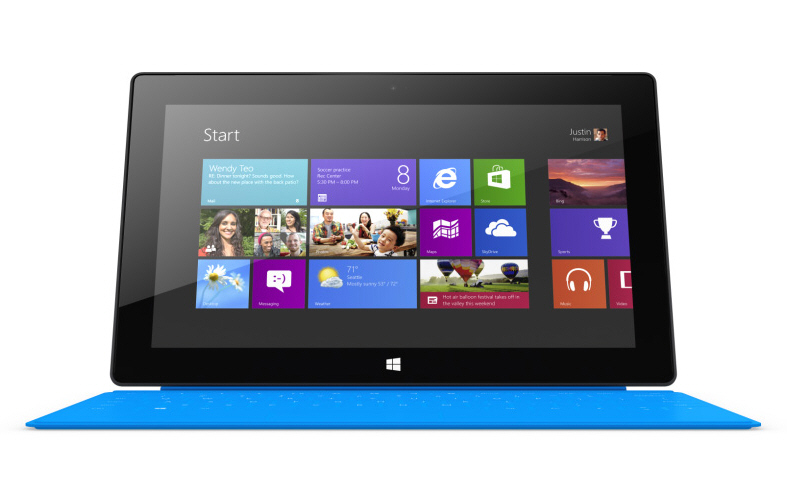
Surface's failure casts yet more doubt on Microsoft's Windows 8 vision
Yesterday a striking fact regarding Surface was revealed in a SEC filing from Microsoft. The software giant's tablet lineup brought in revenue of $853 million in the company's fiscal year 2013 -- just under the embarrassing $900 million Surface-related write off Microsoft declared two weeks ago.
$853 million might sound like quite a lot of money, but what it actually means is the tablet line is a flop, with Microsoft selling just slightly more Surface PCs in a year than Apple shifts iPads in a week.

Microsoft releases Windows 8.1 Enterprise Preview -- available to download now
Microsoft rolled out Windows 8.1 Preview for developers and consumers last month, and now the software giant has followed it up with an enterprise edition.
This differs from the standard Preview release in a number of ways, including introducing additional advanced features such as Windows To Go, Start Screen Control and DirectAccess.
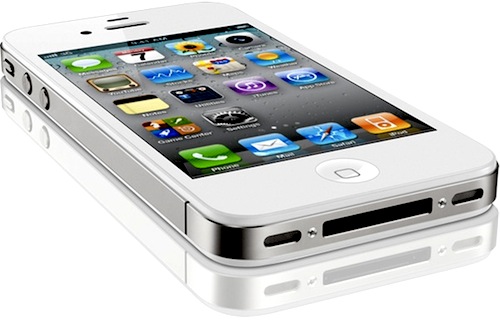
Microsoft, Oracle and others side with Apple over US iPhone 4 ban
Representatives of several companies are asking the Obama Administration to intervene in a patent dispute between Apple and Samsung that resulted in a ban of the sale of older iPhones in the US.
The International Trade Commission ruled last month that Apple infringed on patents owned by Samsung, and ordered a ban on the sale of the iPhone 3G, 3GS, and 4 in the country beginning August 4. Of those devices, only one is now sold. The effect on Apple’s business is likely to be considerable however, given that the iPhone 4 is now free with contract through most of its US partners.
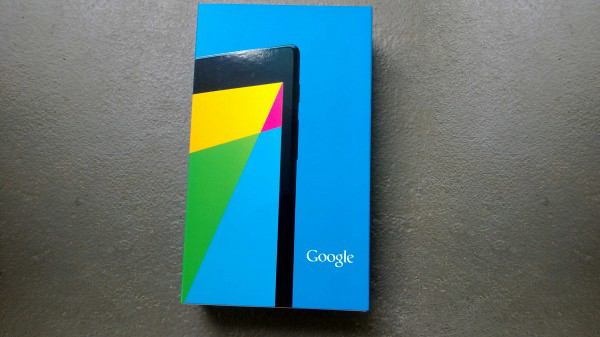
The new Nexus 7: Not your grandfather's Android tablet
"The new Nexus 7 makes my Asus MeMO look pathetic". That is what I told my colleague Joe Wilcox over the weekend. Android, the open source Linux-based mobile operating system from Google can be found in many places -- cheap no-name tablets run the OS, but should be given a wide berth. Big name hardware makers also produce these gadgets -- Samsung and Sony to name just two. However, the most prominent on the market in recent times has been the Nexus 7, the pure Android experience from Google (but built by Asus), and the Kindle Fire HD, Amazon's highly customized tablet.
In the past, regardless of my liking for pure Android, I would have chosen the Amazon device in a heartbeat. It's thinner and has a better screen, plus Prime customers, like myself, have easy access to the retail giant's streaming video library. However, my view changed this past week, as Google rolled out its latest version of the Nexus 7.

Windows Phone stomps all over BlackBerry in Europe
According to a new report from Kantar Worldpanel ComTech, Microsoft's Windows Phone scored another victory over BlackBerry, as in Q2 2013, following Android and iOS, the tiled mobile operating system was the third most popular choice for European smartphone buyers, in major local markets.
In Q2 2013, 6.9 percent of European smartphone buyers from France, Germany, Italy, Spain and UK bought Windows Phone handsets. Meanwhile, only 2.2 percent decided to purchase BlackBerry smartphones. "Windows Phone continues to consolidate its position as the third OS globally, with strong performances in Britain and France where it has 8.6 percent and 9.0 percent of the market respectively", according to the Kantar Worldpanel ComTech report. But it's not all good news though, as Windows Phone's market share dropped slightly in the US.

On the futility of blocking porn and torrent websites, Immunicity style
Pornography has been in the news a great deal, and David Cameron's bid to make online porn "opt-in" has sparked a fierce debate in many quarters. The apparent aim of the proposed measure is to protect children and the responsibility has been moved squarely to the door of ISPs, just as with access to torrent sites. But is this fair?
The Internet is an important element of democracy. It should be a tool for free speech, free access to information and the ability to communicate worldwide free of charge. Freedom is at the heart of it. Creating a two-tier Internet in which some people are able to access all content, and others can only access a portion of it flies in the face of what the world wide web is all about. It is also dangerous.

Five things Microsoft is doing wrong
Microsoft is one of the largest tech companies on the planet. The multi-billion dollar devices and services company employs some of the most brightest scientists, software engineers and designers on the planet. It has demonstrated its ability to create some of the most compelling technologies in the market. Yesterday I discussed the five things I think the company is doing right.
But it's not all good for Microsoft, and there are plenty of questions need asking. Why, for example, is its mobile strategy sucking wind? Why is its web browser, one of the single most important pieces on a computing device these days, struggling to keep pace with other browsers in standards compliance and end user features? In this post I will focus on five areas where I think Microsoft is missing the boat.
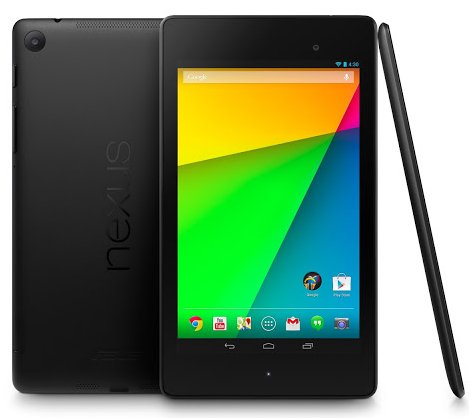
Google unveils the new Nexus 7
In what may have been one of the poorer kept secrets in tech, Google today took the wraps off the brand new Nexus 7. Unfortunately for the search giant, Best Buy won the race, by placing the new tablet up for pre-order early this morning. The device became official shortly thereafter, as Google held its breakfast event with Android chief Sundar Pichai.
"Together with ASUS, we took what you loved about the original Nexus 7 and made it even better," the company states in its official announcement. "The first thing you’ll notice is the sharpness of the screen: the 323 pixels packed into every inch of the screen makes it the world's highest-resolution 7-inch tablet. It’s lighter than ever, with more than nine hours of HD video playback and 10 hours of web browsing or reading. Nexus 7 now features stereo speakers and virtual surround sound from Fraunhofer (the inventors of the MP3 format), giving you rich and immersive audio".

Internet Explorer has the worst phishing catch rate of all major browsers
A new report by security research firm NSS Labs looks at the comparative performance of popular browsers when it comes to blocking phishing attacks. Over a 12-day test period the average phishing catch rate ranged from 96 percent for Firefox 19 to only 83 percent for Internet Explorer 10.
Of the other big three, Chrome 25 scored 92 percent, Safari 5 managed 95 percent, and Opera 12 scored 89 percent. Chrome, Firefox and Safari all make use of Google's Safe Browsing API so it's unsurprising that they scored within a few points of each other. Microsoft uses its own SmartScreen technology in IE, whereas Opera uses a combination of blacklists from Netcraft, PhishTank and TRUSTe.
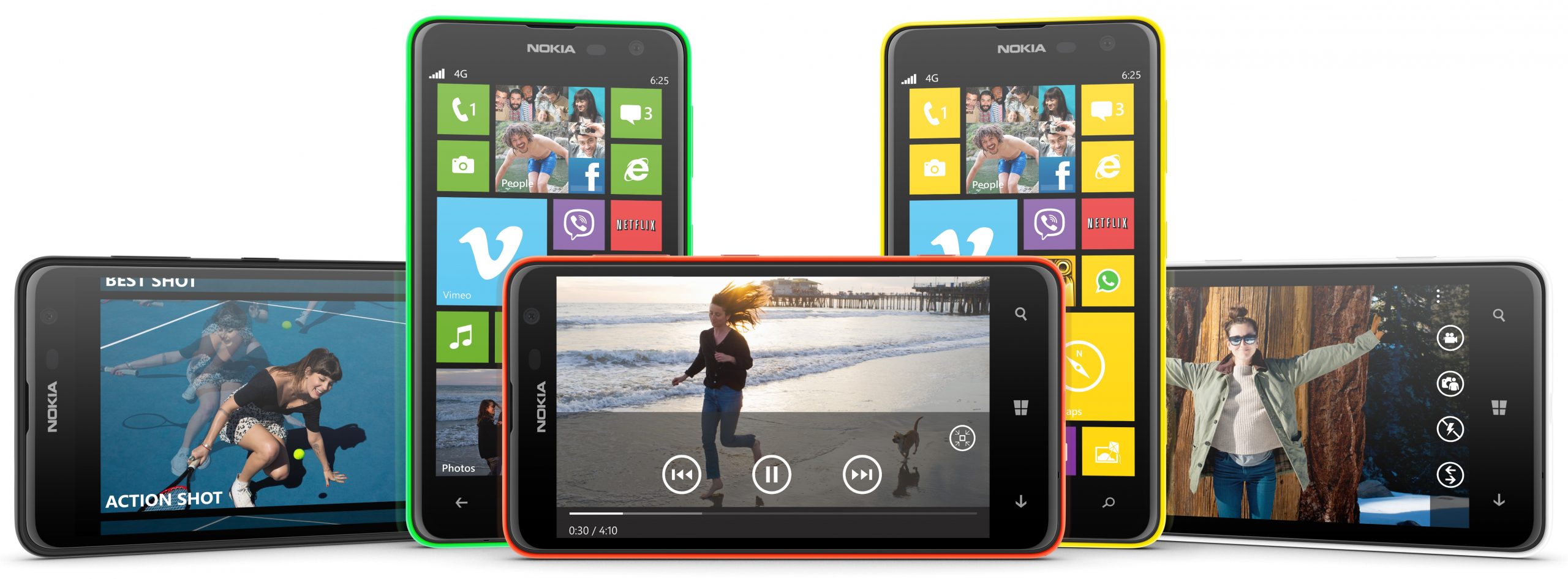
Nokia announces Lumia 625 Windows Phone
Earlier today, following the "something BIG" teaser, Finnish maker Nokia took the wraps off a 4.7-inch, entry-level Windows Phone 8 handset, called Lumia 625. The new device features the largest panel that the company ever offered alongside the tiled smartphone operating system.
The Lumia 625 packs a 4.7-inch display with a resolution of 480 by 800 (201 pixels per inch density), that can be operated using gloves, and is powered by a 1.2 Ghz dual-core Qualcomm Snapdragon S4 processor, 512 MB of RAM and a non-removable 2,000 mAh battery. The device comes with 8 GB of internal storage and a microSD card slot (can extend the capacity by a further 64 GB).

Canonical begs Linux users to fund Ubuntu Edge smartphone
The Linux community has been clamoring for a truly open-source Linux-based smartphone. While Android is a Linux based operating system, core Google apps are not open-source. And so, Canonical started development of a mobile operating system to meet the needs of the Linux community -- Ubuntu Touch. Ubuntu Touch (sometimes called "Ubuntu Mobile" or "Ubuntu for Phones") has been available as a preview to testers. It has successfully been installed on devices such as the Nexus 7 and Galaxy Nexus.
Unfortunately, Canonical is very limited in what devices can run its mobile OS -- most devices have locked bootloaders which prevent alternative operating systems. A locked-down phone is also in conflict with Linux-ideology. Today, Canonical officially launches a crowd-funding effort on Indiegogo to create its own phone without those roadblocks called Ubuntu Edge. There is only one problem -- it needs (in Dr. Evil’s voice) $32,000,000!
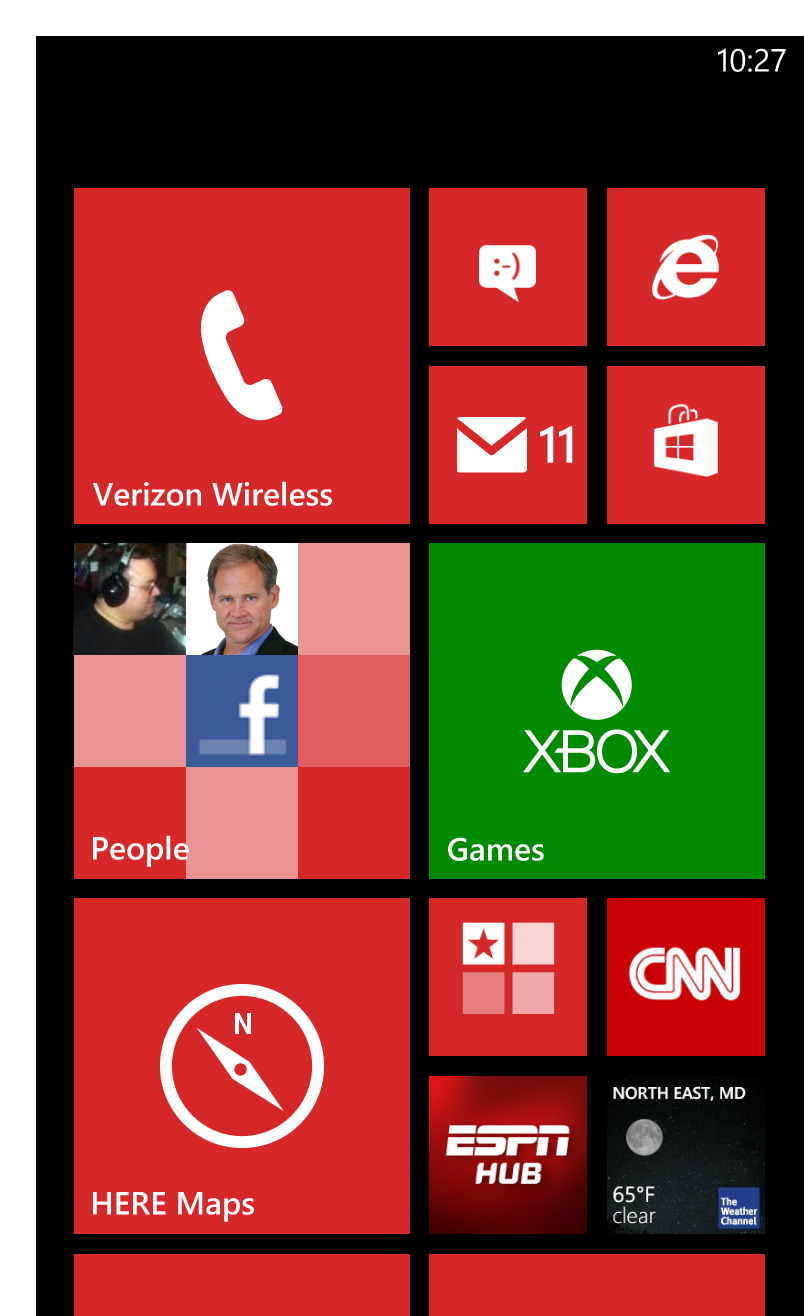
Tales from an Android fan: This Lumia 928 is nice!
I have never had a single thing against Windows Phone, nor iOS for that matter, but I embraced the Android ecosystem early on, with much invested in apps. Alright, "much" may be a stretch -- I can not imagine it is more than $50 total, but paid software still means money spent, and I am not known as Mr. Big-Spender.
For the past month I have been taking the Windows Phone challenge -- my Nexus is put aside, SIM card removed and currently residing within the confines of a Nokia Lumia 928.

This is why you dislike Bing
I love Bing. There aren’t many products (Xbox) that I’ll admit to being a fanboy of but Bing is getting pretty close to that status for me. I’m an oddity because most people don’t use Bing at all; either because they’ve used it and didn’t get the results they wanted, or based on word of mouth about it being so terrible. I don’t know where you fall, but I would bet most of you reading this don’t use or even like Bing. That’s unfortunate because you’re missing out.
Yes, Bing is good. But why do so many people hate it? Why do so many googlers refuse to even give it a try? Why do those who actually do give it a try, enter one search query, fail to get the results they want, and go back to Google, never giving Bing a second chance?
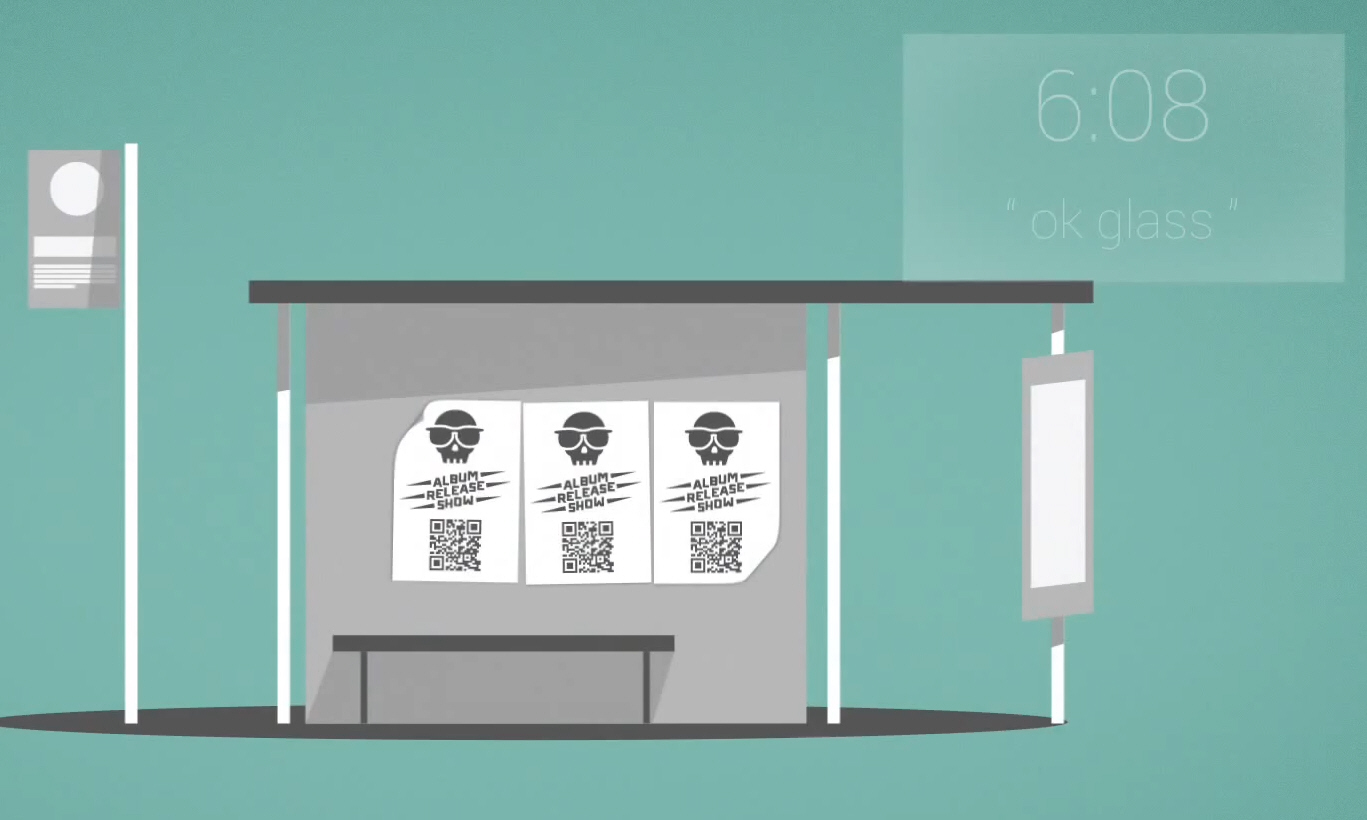
Google Glass successfully hacked -- right in front of your eyes
Google Glass may not have been officially released to the public yet (it is currently only available to testers dubbed "Glass Explorers" by Google), but mobile security juggernaut Lookout has already found a security vulnerability that makes it possible to hack the wearable computer for potentially dangerous and malicious purposes.
The vulnerability impacting Google Glass is initiated through QR codes -- basically advanced barcodes. By design, a Glass user can scan these barcodes with the device's camera to do things such as perform an action or change a setting. While this provides beneficial functionality to the user, it also offers a new gateway for malicious hackers.
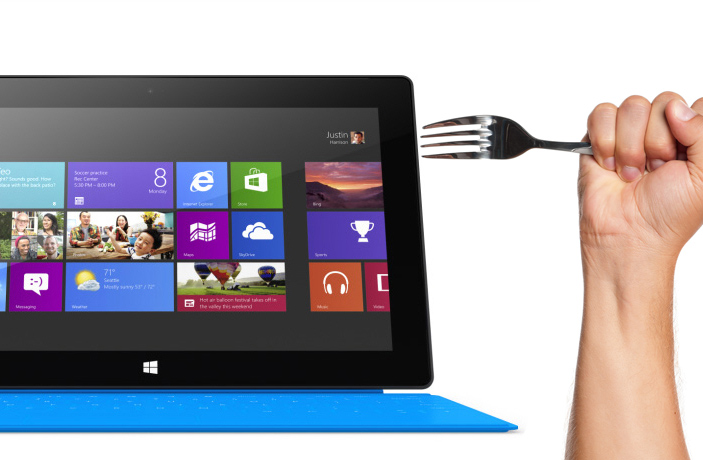
Stick a fork in it, Windows RT is done
Microsoft has slashed the price of Surface RT, making the device pretty affordable. Anyone hoping that Surface Pro would see a similar reduction will be disappointed. Microsoft shows no signs of cutting the price of its premium tablet, suggesting the company is happy enough with sales and margins at the moment.
The problem with RT is it looks like Windows 8, and behaves like Windows 8, but isn't Windows 8. If you buy Surface RT, or any other tablet running the OS, you might reasonably expect to be able to run traditional software on it. But you can't.
